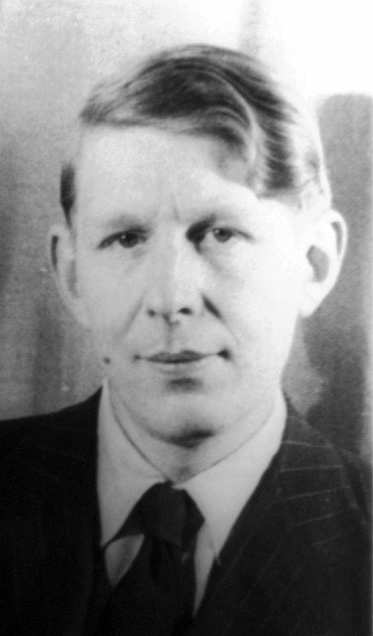W. H. Auden Frases famosas
“Ser livre é com freqüência estar sozinho.”
to be free is often to be lonely
Selected poetry of W. H. Auden - Página 57, Volume 102 de Vintage international, Wystan Hugh Auden - Vintage Books, 1971
Cats can be very funny, and have the oddest ways of showing they're glad to see you. Rudimace always peed on our shoes.
citado em Reflections international: the TV & TS magazine - Página 28, de TransEssex (Organization) - Publicado por TransEssex, 1999
“O Público e eu sabemos o que toda criança aprende, aqueles a quem se faz mal fazem mal em retorno.”
I and the public know What all schoolchildren learn, Those to whom evil is done Do evil in return
W. H. Auden, em 1 de setembro de 1939, conforme citado em "The centre of things: political fiction from Disraeli to the present" - Página 189, de Christopher Harvie - Publicado por Unwin Hyman, 1991, ISBN 0044455925, 9780044455929 - 245 páginas
W. H. Auden: Frases em inglês
"Interlude: West's Disease", p. 241
The Dyer's Hand, and Other Essays (1962)
Fonte: September 1, 1939 (1939), Lines 78–88; for a 1955 anthology text the poet changed this line to "We must love one another and die" to avoid what he regarded as a falsehood in the original.
“Minus times minus equals plus,
The reason for this we need not discuss.”
As stated in "The Poet Himself" http://query.nytimes.com/gst/fullpage.html?res=9F01E6D81539F937A35753C1A967948260 by Paul Fussell, in The New York Times (4 October 1981), these lines were a "math mnemonic" which Auden "had to memorize as a child."
Misattributed
As I Walked Out One Evening (1937)
Base words are uttered (1940), lines 1–5
“The windiest militant trash
Important Persons shout
Is not so crude as our wish.”
Fonte: September 1, 1939 (1939), Lines 56–58
Fonte: In Memory of W.B. Yeats (1939), Lines 66–77
Fonte: In Memory of W.B. Yeats (1939), Lines 10–23
"The Poet & The City", p. 84
The Dyer's Hand, and Other Essays (1962)
Look, Stranger, on This Island Now (1936), first published in book form in Look, Stranger! (1936; US title On this Island)
After Reading a Child's Guide to Modern Physics (1961), lines 9–16
Interlude: West's Disease", p. 245
The Dyer's Hand, and Other Essays (1962)
"Interlude: West's Disease", p. 243
The Dyer's Hand, and Other Essays (1962)
Reported by Lionel Trilling in "On the Modern Element in Modern Literature", Partisan Review, January-February 1961, p. 15 (reprinted in Trilling's Beyond Culture, 1965): Trilling wrote: "taking the cue of W. H. Auden's remark that a real book reads us, I have been read by Eliot's poems...".
More commonly reported as "a real book is not one that we read but one that reads us". This paraphrase of Trilling's reported quotation first appeared in a review by Robie Macauley of Trilling's Beyond Culture in the New York Times Book Review, 14 November 1965, p. 38: "I must borrow a phrase from Mr. Trilling (who borrows it from W. H. Auden): a real book is not one that we read but one that reads us." The same version, attributed to Auden, appears in Evan Esar, 20,000 Quips & Quotes (1968), p. 87 (with a comma after "we read"). There is no evidence that Auden ever wrote or said this version of the phrase.
Other variations (e.g. "not one that's read" for "not one that we read") seem to be misrecollections of Robie Macaulay's paraphrase.
Reported quotations
but these are very crude, constantly breaking down, and liable to injure the cook. Literary composition in the twentieth century A.D. is pretty much what it was in the twentieth century B.C.: nearly everything has still to be done by hand.
"Writing", p. 17
The Dyer's Hand, and Other Essays (1962)
When all he has to do is press a switch, it is more difficult. He may easily come to believe that wishes can come true.
Interlude: West's Disease", p. 245
The Dyer's Hand, and Other Essays (1962)
And the poor patient in his delirium cries: "Please sing me a song which will give me sweet dreams instead of nightmares. If you succeed, I will give you a penthouse in New York or a ranch in Arizona."
"Writing", p. 27
The Dyer's Hand, and Other Essays (1962)
<p> And the nations combine each cry, invoking the life
That shapes the individual belly and orders
The private nocturnal terror:
"Did you not found the city state of the sponge,<p>"Raise the vast military empires of the shark
And the tiger, establish the robin's plucky canton?
Intervene. Descend as a dove or
A furious papa or a mild engineer, but descend."
Fonte: Spain (1937), Lines 33–44
